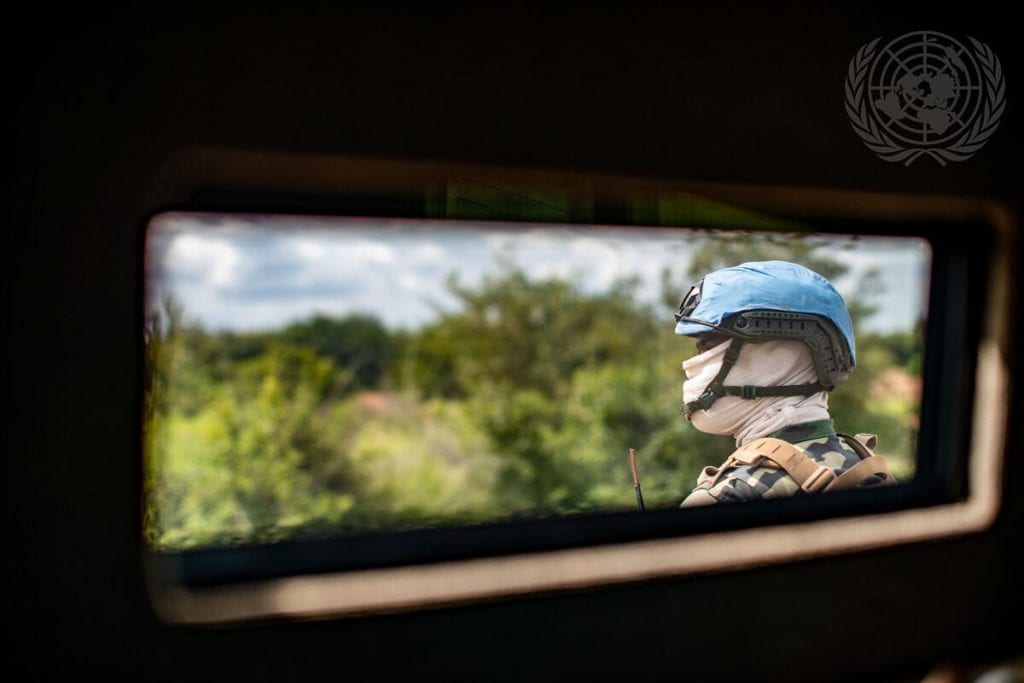
Exploring ways to improve intergroup relations in postconflict countries by bringing together a multigenerational cohort of Harvard and global scholars and practitioners network of scholars at all career stages from Harvard and other US- and globally based institutions who work on conflict, conflict resolution, and identity politics.
Addressing Ethnic and Religious Conflict
From Germany to Brazil, the world has witnessed the rise of ethno-nationalism over the past two decades, a trend which recently culminated with the deadly storming of the US Capitol in January 2021 by mostly white, right-wing protesters. The spectacle of insurrection against the world’s most stalwart democracy illustrates how far extreme identity politics can penetrate. This resurgence of far-right parties in Europe has polarized the public, resulting in the breakdown of communication and rising intolerance.
In parallel, ethnic and sectarian violence and conflict are on the rise across the world—or at least show few signs of abatement—making it urgent to understand why some communities develop norms and practices of toleration, achieve reconciliation, or resist the politicization of these identities. Even if they are not the root cause of these conflicts, nationalism, ethnicity, and religion often become salient when political violence targets “others”—and they exhibit remarkable stickiness in social and political life. When intergroup tensions have ratcheted up, is it possible to mitigate the impact? Can a shared civic identity be (re)constructed in the wake of violence waged in the name of nationalism, ethnicity, or religion?
Learning from cases of “success” and “failure” can help us answer these questions. Why do some places, such as South Africa, achieve relative success with transitional justice while other countries, such as Rwanda, face deep obstacles to postconflict reconciliation? Why were the Netherlands and Austria able to unwind transitional power-sharing arrangements to develop more effective democratic institutions while Northern Ireland, Bosnia-Herzegovina, and other countries remain locked into suboptimal governance arrangements cemented by power-sharing systems? Why have Christians and Druze in some villages and towns in the Chouf learned to live together peacefully after bloody violence during the Lebanese Civil War while others remain deeply antagonistic toward each other?
This research cluster explores ways to improve intergroup relations in postconflict countries by bringing together a network of scholars at all career stages from Harvard and other US- and globally based institutions who work on conflict, conflict resolution, and identity politics. Through workshops, seminars, lectures, and even small grants to local affiliated researchers, the cluster aims to establish lasting collaborations among researchers domestically and abroad that will forge innovative scholarship and draw on evidence from diverse global regions. The cluster also creates opportunities for scholars to translate their research into short, accessible, policy-oriented pieces and to engage directly with representatives from relevant government agencies and civil society organizations to share and discuss their findings.
The questions at the heart of the research cluster promise to shed light on the prospects for coexistence in places around the world where the weaponization of ethno-religious and national identities during conflict has ripped apart societies. Practitioners and scholars increasingly acknowledge that interventions aimed at postconflict prejudice reduction and improved intergroup relations have yielded mixed results, and citizens are increasingly skeptical about NGO-led interventions to promote intergroup reconciliation. Research on how peacekeeping missions, national and local political institutions, local-level initiatives, or other approaches can foster peacebuilding more effectively can generate policy-relevant knowledge based on strong academic foundations.
The Weatherhead Research Cluster on Identity Politics is chaired by Professor Melani Cammett. Maximillian Calleo is the project coordinator. Its offices are located at 1737 Cambridge Street, Cambridge, MA 02138.
Caption: A peacekeeper stands guard at a stop on the way to Ogossagou. The village of Ogossagou is located 144 kilometres from the town of Sévaré in the Mopti region of central Mali. The village of Ogossagou has been hosting a temporary operational base (TOB) for over two years with peacekeepers from Senegal serving with the Quick Reaction Force (QRF) of the United Nations Multidimensional Integrated Stabilization Mission in Mali (MINUSMA). The objective of this operation is to maintain peace between the communities which, in February 2020, clashed violently, causing several hundred deaths, the majority of which were women and children. The village of Ogossagou is difficult to access by land due to the security situation, terrorist attacks, and Improvised Explosive Devices (IED), and to the isolation of the village. Recently, calm has returned to Ogossagou with the signing of local agreements between the two communities. Quick Reaction Force of MINUSMA Hosts Base in Ogossagou, Mali, ID#UN7957202, 8/30/2022. Credit: UN Photo/Harandane Dicko

